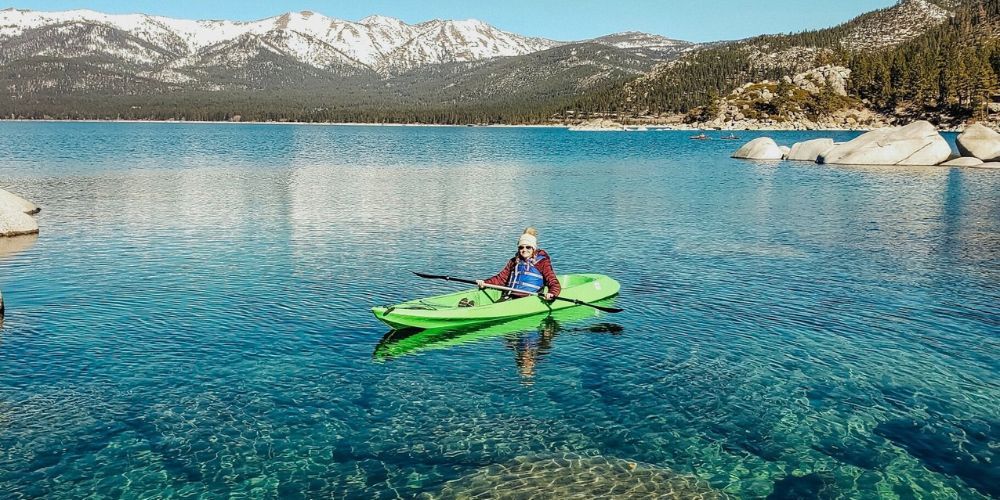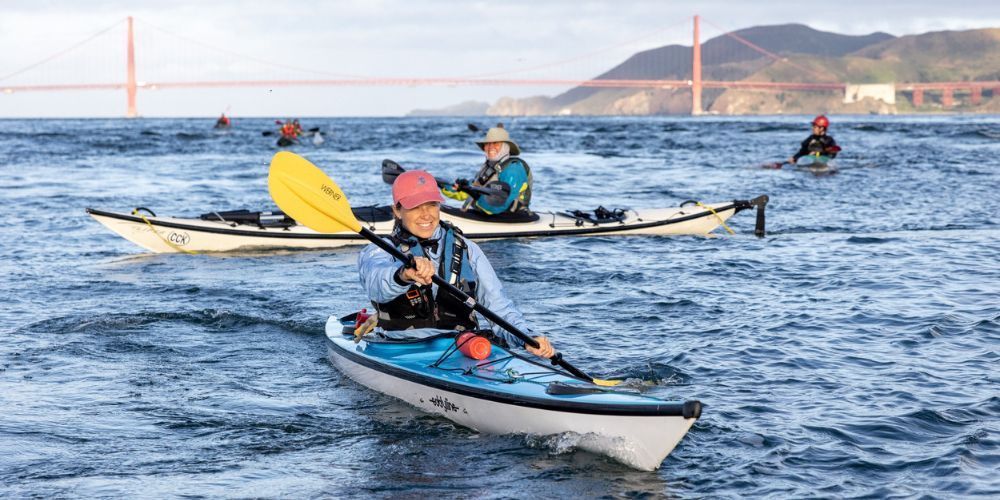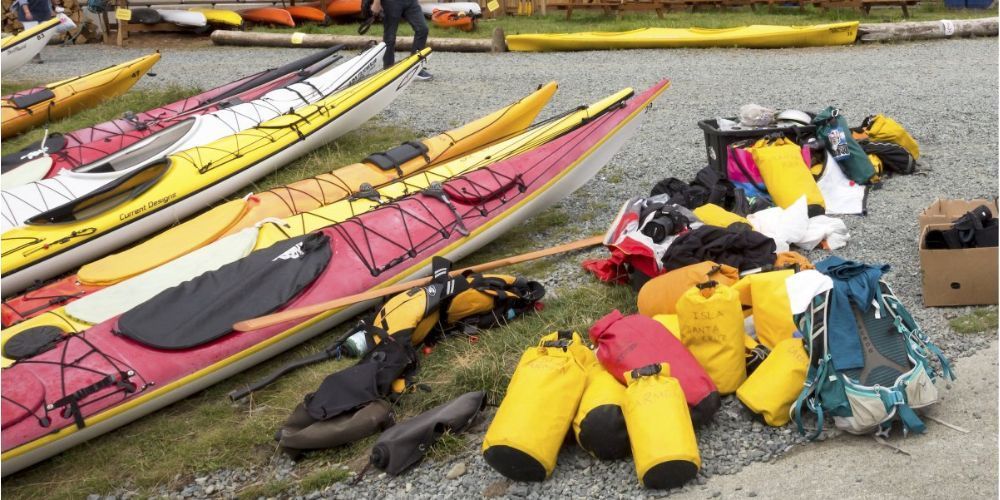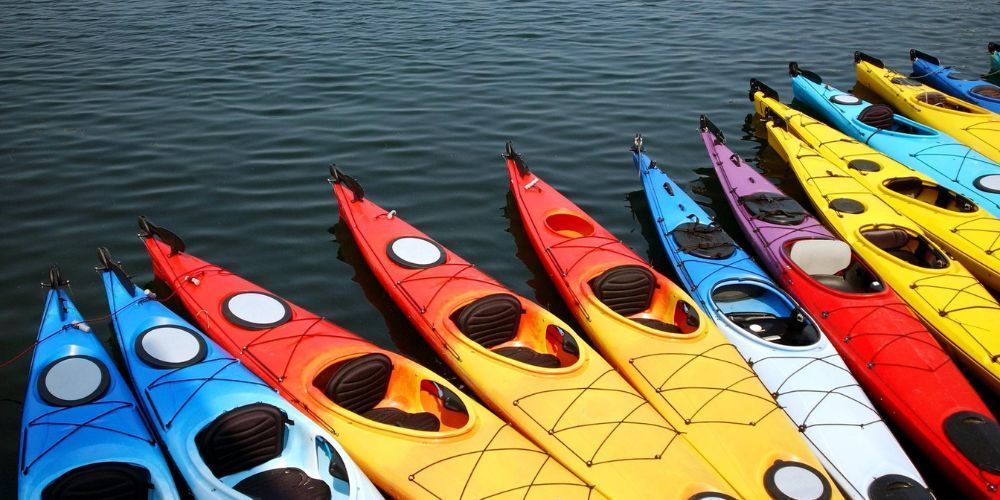Kayak Gloves: Essential Gear for Paddlers in Water Sports
When you're miles away from shore with paddle in hand, nothing disrupts the tranquility more than sore, blistered fingers and a slipping grip. That's why finding the right pair of kayak gloves is crucial for any serious paddler. Imagine navigating rocky waters with confidence, knowing your hands are both protected and comfortable. This guide investigates what makes certain kayak gloves stand out – from durability to material choices – so you can focus on enjoying your adventure.
We've spent hours exploring user testimonials, expert reviews, and trying various options firsthand to ensure we provide reliable recommendations. From neoprene gloves that keep warmth in frigid waters to nylon options offering lightweight breathability for hotter days, this curated list highlights the top picks favored by seasoned kayakers.
The NRS Maverick Glove is highly recommended for cold-water paddling due to its durable construction, excellent insulation, and superior grip. With its neoprene material and sealed seams, it provides exceptional warmth and protection against cold water, allowing paddlers to enjoy their water adventures even in chilly conditions.
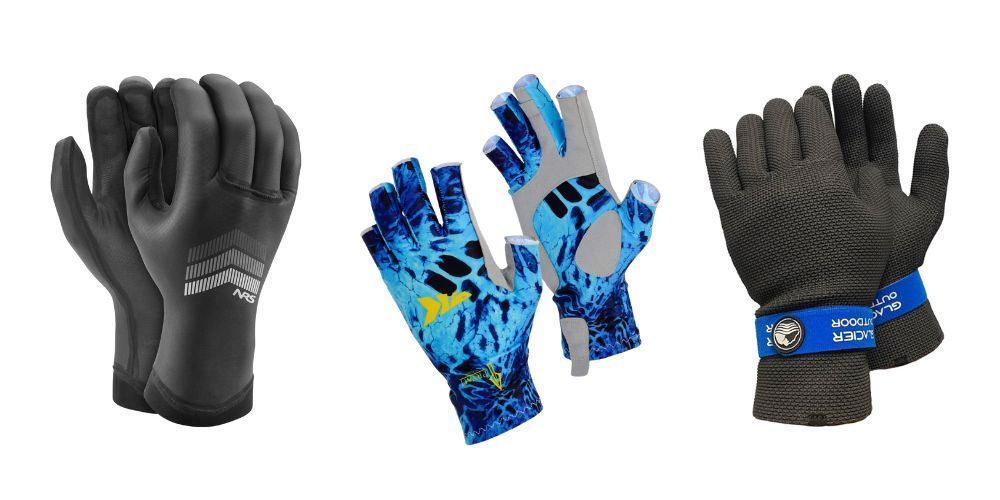
Top Kayak Gloves on the Market
When it comes to kayaking, having the right gear can make all the difference. Experienced paddlers often emphasize the importance of reliable equipment, and when it comes to kayak gloves, there are a few standout brands that consistently receive high praise in the kayaking community.
One such brand is NRS , known for its durable and high-quality water sports gear. The NRS Maverick Gloves are specifically designed to provide a snug fit and excellent grip, making them an ideal choice for rough conditions. This feature is particularly appreciated by paddlers navigating challenging waters, as it allows for better control and stability during their kayaking adventures.
Similarly, Glacier Glove is another brand that has garnered recognition within the kayaking community for its exceptional glove designs. The Glacier Glove Kenai Waterproof Gloves stand out for their ability to offer both tactile feel and warmth. These are essential qualities sought after by kayakers who frequently tackle cold waters, ensuring that their hands remain protected and comfortable even in low temperatures.
Let's consider the scenario: You're out on the water, surrounded by icy currents. The last thing you want is to lose sensation in your fingers due to the biting cold. In such situations, having a pair of kayak gloves like the Glacier Glove Kenai Waterproof Gloves can make all the difference, allowing you to maintain dexterity while keeping your hands warm throughout your expedition.
Another renowned brand in the realm of kayak gloves is Sealskinz , known for its innovative designs that cater to the specific needs of water sports enthusiasts. Paddlers often recommend Sealskinz due to the brand's focus on creating gloves that offer both functionality and comfort, ensuring that kayakers have a positive experience on the water.
As you explore different options for kayak gloves , consider the experiences and insights shared by seasoned paddlers. Their recommendations often stem from practical application and firsthand encounters with various gloves in diverse kayaking environments, making their suggestions invaluable when selecting the best gear for your water adventures.
In the world of water sports, durability and material choices play a pivotal role in enhancing performance and comfort. Let's now dive into understanding how these aspects can influence your kayaking experience.
Durability and Material Choices
When it comes to kayaking, wear and tear are unavoidable due to constant exposure to water, friction, and movement. Therefore, selecting the right material for your kayak gloves is crucial. Neoprene stands out for its remarkable longevity, being tough and flexible, making it perfect for enduring the rigors of water sports without deteriorating as quickly as other materials.
Imagine Neoprene as your trusty sidekick, standing by you against the elements. It battles constant water exposure like a hero, providing reliable protection for your hands while maintaining its form over time.
In high-friction areas such as the palms of the gloves, synthetic leather reinforcements can make a world of difference. These reinforced areas combat premature breakdown due to constant rubbing and gripping. They're like armor that shields your gloves from succumbing to the stresses of paddling, ensuring that they remain robust and intact throughout your adventures.
Think of it like having reinforcements at the front lines of battle—protecting the most vulnerable areas from excessive damage and ensuring that your gloves have a longer lifespan.
On warmer days or in tropical climates, lightweight comfort takes precedence. Enter nylon gloves, which offer quick-drying capabilities and a featherlight feel that won't weigh you down during your paddling excursions. However, it's important to note that this lightweight convenience might come at a trade-off in terms of durability. While nylon excels in warm weather comfort, it may not withstand abrasion and constant use as effectively as neoprene or synthetics.
Nylon gloves are akin to a sleek, lightweight sports car—it's fantastic for speed and agility but might not pack the same resilience as a rugged off-road vehicle.
Ultimately, when choosing kayak gloves , understanding these material choices and their respective durability ratings is key. It's about finding the right balance between long-term endurance and functionality to ensure that your gear remains reliable every time you hit the water.
Understanding durability is essential for choosing the right gear; now let's dive into how different materials contribute to insulation and warmth for paddlers in water sports.
Insulation and Warmth Factors
When you're out on the water in colder weather, keeping your hands warm and protected is essential to an enjoyable paddling experience. The right insulation can make all the difference, ensuring that your hands stay warm and nimble despite the chilly conditions. Let's explore some key factors regarding insulation and warmth when it comes to kayak gloves.
Thickness for Optimal Insulation
Thickness plays a significant role in determining how well a glove will insulate your hands from the cold. Thicker neoprene, typically ranging from 3mm to 5mm, provides greater warmth retention but may limit dexterity to some extent. This means that while thicker gloves offer enhanced insulation, they may compromise your ability to maneuver your fingers easily. It's important to find a balance based on the weather conditions you'll be paddling in and your personal comfort preferences.
Additional Lining for Enhanced Warmth
In addition to thickness, the type of lining used in kayak gloves can significantly impact their insulation properties. Gloves with a fleece or wool lining offer superior warmth retention, effectively shielding your hands from the biting cold. For example, the Sealskinz All Weather Gloves are designed with a merino wool lining, which provides exceptional warmth and comfort, making them ideal for prolonged exposure to colder temperatures. The merino wool's natural insulating properties make these gloves a popular choice for paddlers seeking maximum warmth without compromising dexterity.
Imagine being out on the water in early spring when the air is brisk, and you need reliable protection against the chill. A pair of gloves with a fleece or wool lining could make all the difference, ensuring that your hands remain comfortably warm throughout your kayaking adventure.
As you consider various options for kayak gloves , pay close attention to both thickness and additional lining materials to make an informed choice that suits your specific needs. Balancing warmth with finger flexibility is crucial for maintaining control over your paddle while keeping icy winds at bay.
Having addressed insulation and warmth factors, it's evident that finding the right balance between thickness and lining material is key to ensuring optimal comfort during cold-weather paddling expeditions.
Additional Accessories for Paddlers
When enjoying your kayaking adventures, certain accessories can enhance your experience on the water. These items not only complement your kayak gloves but also contribute to your overall comfort and safety.
Your gloves provide excellent grip, but adding rubber grips or tape to your paddle can further enhance this, ensuring a secure hold. This is especially helpful in rough water conditions where maintaining a strong grip on your paddle is crucial for effective navigation.
During colder weather conditions, reusable hand warmers placed inside your gloves during breaks can help maintain hand warmth. This extra layer of warmth becomes crucial in frigid conditions and ensures that you can continue paddling comfortably without discomfort from the cold.
Imagine unexpected water leakage or heavy rain threatening to dampen your spare pair of gloves. This is where dry bags come to the rescue. By keeping spare gloves in dry bags, you are assured of having dry replacements available at all times. This simple addition ensures that you can switch into dry gloves whenever needed, allowing you to maintain a comfortable and secure grip on your paddle.
By incorporating these accessories into your kayaking equipment, you can elevate your paddling experience and face various weather conditions with confidence. All of these additional items work together to ensure that you have a safe and enjoyable time out on the water.
Incorporating these additional accessories greatly enhances the kayaking experience, but it's also essential to ensure that your gear fits correctly for optimum performance. Let's now explore the importance of proper glove sizing for kayakers.
Proper Glove Sizing
Choosing the right size of kayak gloves is essential for comfort, protection, and unrestricted movement. Just as every hand is unique, so too should be the gloves that shield it. To begin the quest for the perfect fit, measuring the circumference and length of your hand is crucial. This ensures that you can pinpoint the ideal size from specific manufacturer sizing charts.
Measuring Your Hand
To determine the correct glove size, start by wrapping a flexible tape measure around your hand just below the knuckles while making a fist. The measurement here gives an accurate indication of the circumference of your hand. Remember, a snug but not constricting fit is what you're aiming for.
If you don't have a flexible tape measure at hand, don't worry! You can always use a piece of string or even a strip of paper to wrap around your hand. Once you have the measurement, lay it flat alongside a ruler or measuring tape to find out its length. The measurements of both the circumference and length are essential as they guide you to find the perfect fit according to size charts provided by kayak glove manufacturers.
Consulting Size Charts
Keep in mind that different brands may have slightly varying sizing standards. Therefore, it's vital to refer to each brand's specific size guide before making a purchase. Our website offers comprehensive size guides to ensure that you select the accurate size tailored to your measurements. By referring to these guides, you can be confident in finding a glove that offers an optimal fit, providing maximum comfort and dexterity for your hands during water sports activities.
Taking the time to measure your hand accurately and consulting brand-specific size guides will enable you to make an informed decision when selecting kayak gloves. It’s all about ensuring that your gloves fit just right, providing comfort and safety as you navigate through the water on your next paddling adventure.
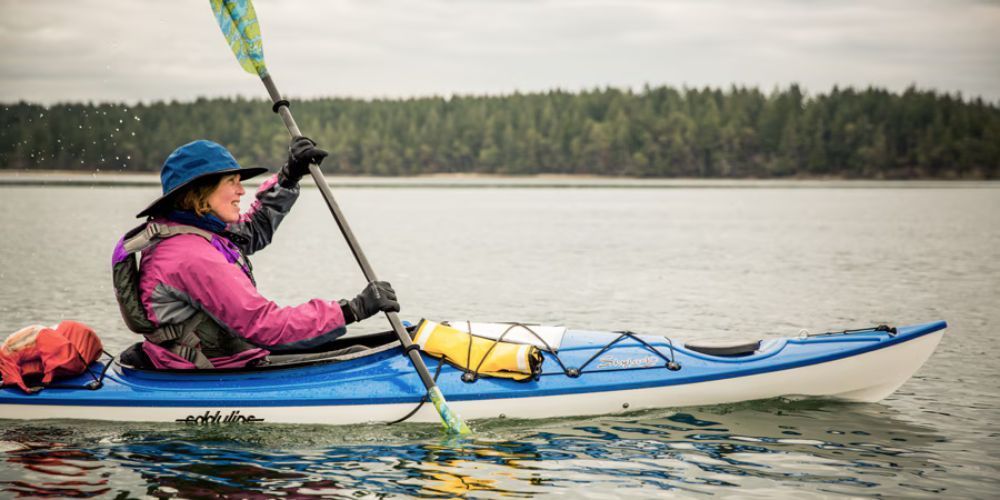
Choosing the Right Fit
Getting the perfect fit for your kayak gloves goes beyond just ensuring they are snug on your hands. It's about striking a balance between fit and function—ensuring they enhance your grip and movement without compromising comfort or restricting blood flow to your hands. When you wear a well-fitting pair of kayak gloves , they should enable you to move your fingers freely and comfortably.
You want to ensure there's enough room at the fingertips so that your hands can flex and stretch easily without feeling restricted. Imagine trying to hold onto a paddle with stiff, cramped fingers—that would not be a comfortable or effective experience, right? Your gloves should feel like a second skin, providing protection without sacrificing natural movement.
Remember, kayaking involves numerous movements that depend on dexterity, making it essential to find gloves that strike a balance between snugness and freedom of movement.
For instance, imagine trying to tie a knot or adjust your gear with bulky or ill-fitting gloves—it's not only frustrating but can also affect your safety on the water.
When purchasing in-store, take advantage of trying on several pairs and simulating paddling motions. This will help you gauge the flexibility and comfort of each pair before making a decision. If you're shopping online, keep an eye out for stores that offer detailed return policies to facilitate exchanges if needed.
Choosing the right fit for your kayak gloves isn't just about sizing; it's about ensuring they support your movement and grip while maintaining optimal comfort and flexibility. This balance is key to maximizing your paddling experience and safety on the water.
It's clear that finding the perfect kayak gloves is crucial for an enjoyable paddling experience. Now, let's explore some valuable tips for extending the lifespan of your essential paddling gear in the next section.
Usage Tips for Longevity
Ensuring the longevity of your kayak gloves involves more than just keeping them clean; it also entails proper care after each use. Let's walk through some essential usage tips that will help you preserve your gear and make the most out of it.
1. Cleaning After Use
Salt, chlorine, and dirt can weaken the materials of your kayak gloves over time, so it's crucial to rinse them with fresh water after each outing. This simple step helps to remove these potentially damaging elements and extends the lifespan of your gloves. For a more in-depth guideline on cleaning your gloves, don't hesitate to check out our website's detailed care guide for step-by-step cleaning tips.
2. Proper Drying Techniques
After giving your gloves a good rinse, proper drying is equally important. Air-drying gloves fully before storing them will prevent mold growth, maintaining their integrity and hygiene. It's important to avoid using direct sunlight for drying, as prolonged exposure can degrade certain materials commonly used in kayak gloves, such as neoprene. Ensuring proper drying techniques not only protects your gloves but also maintains their effectiveness and comfort during use.
3. Storage Recommendations
When it comes to storing your kayak gloves, a cool and dry place is the ideal environment. Hanging the gloves by the fingers can aid in maintaining their natural shape, helping to ensure a comfortable fit every time you gear up for your next adventure. Additionally, utilizing storage bags when the gloves are not in use can protect them from dust and environmental damage, further extending their lifespan and quality.
By following these simple yet essential usage tips for kayaking gloves, you can significantly prolong their life and keep them in top-notch condition for all your future paddling experiences. It's important to remember that proper care and maintenance of your gear not only save you money in the long run but also contribute to a safer and more enjoyable paddling experience.
In summary, taking care of your kayak gloves not only ensures their durability but also contributes to an overall enhanced paddling experience. Happy paddling!
Nature's Playbook
As an Amazon Associate I earn from qualifying purchases.

